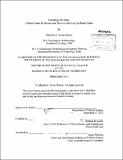| dc.contributor.advisor | Richard M. Locke. | en_US |
| dc.contributor.author | Kruks-Wisner, Gabrielle K | en_US |
| dc.contributor.other | Massachusetts Institute of Technology. Department of Political Science. | en_US |
| dc.coverage.spatial | a-ii--- | en_US |
| dc.date.accessioned | 2014-01-09T19:52:07Z | |
| dc.date.available | 2014-01-09T19:52:07Z | |
| dc.date.issued | 2013 | en_US |
| dc.identifier.uri | http://hdl.handle.net/1721.1/83760 | |
| dc.description | Thesis (Ph. D.)--Massachusetts Institute of Technology, Dept. of Political Science, 2013. | en_US |
| dc.description | "February 2013." Cataloged from PDF version of thesis. | en_US |
| dc.description | Includes bibliographical references (pages 271-281). | en_US |
| dc.description.abstract | Who makes claims on the state and how? This dissertation examines the processes through which citizens seek to secure public resources from the state and, by extension, the patterns of participation and citizen-state relations that emerge. Using the case of rural India, I explore whether and how citizens navigate their local environments to demand public services such as drinking water, health services and education, or access to welfare and poverty reduction programs. My fieldwork in the state of Rajasthan, consisting of 400 in-depth interviews and a survey of 2210 households across 105 villages, reveals variation in the incidence and practice of claim-making, ranging from those who do not engage the state at all, to direct petitioning of officials, to strategies mediated through non-state actors and informal institutions. Such variation cannot be adequately explained by an individual's socioeconomic status, by the characteristics of formal institutions, or by levels of development in a locality. Rather, I find that claim-making practice is shaped by the degree to which a person is exposed to people and settings across such social and spatial lines. Through ties that extend beyond the immediate community and locality, a person encounters information and ideas about the state and its resources as well as an array of contacts that provide linkages to the state. Socio-spatial exposure across divisions of caste, class, neighborhood, or village expands both the opportunities and knowledge necessary for citizen-state engagement, increasing both the likelihood as well as the breadth of claim-making practice. These findings shed critical light on our understanding of both distributive politics (who gets what from the state) and democratic practice (who participates and how). | en_US |
| dc.description.statementofresponsibility | by Gabrielle K. Kruks-Wisner. | en_US |
| dc.format.extent | 305 pages | en_US |
| dc.language.iso | eng | en_US |
| dc.publisher | Massachusetts Institute of Technology | en_US |
| dc.rights | M.I.T. theses are protected by
copyright. They may be viewed from this source for any purpose, but
reproduction or distribution in any format is prohibited without written
permission. See provided URL for inquiries about permission. | en_US |
| dc.rights.uri | http://dspace.mit.edu/handle/1721.1/7582 | en_US |
| dc.subject | Political Science. | en_US |
| dc.title | Claiming the state : citizen-state relations and service delivery in rural India | en_US |
| dc.type | Thesis | en_US |
| dc.description.degree | Ph.D. | en_US |
| dc.contributor.department | Massachusetts Institute of Technology. Department of Political Science | |
| dc.identifier.oclc | 864823606 | en_US |
